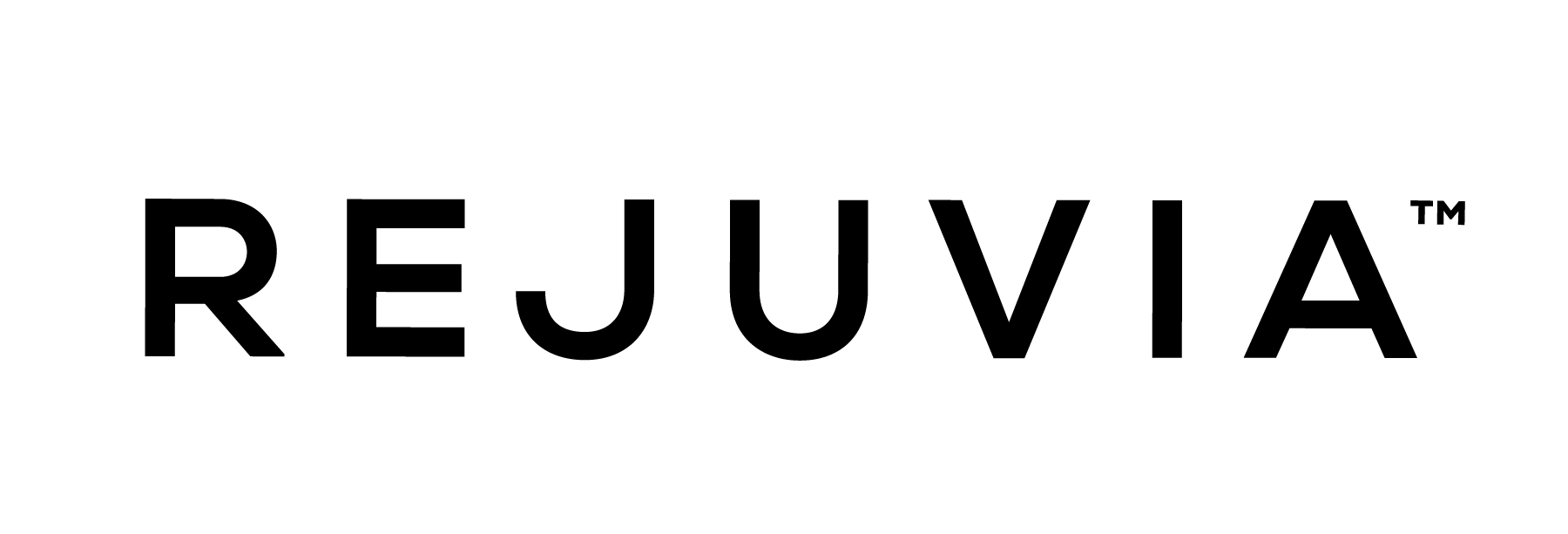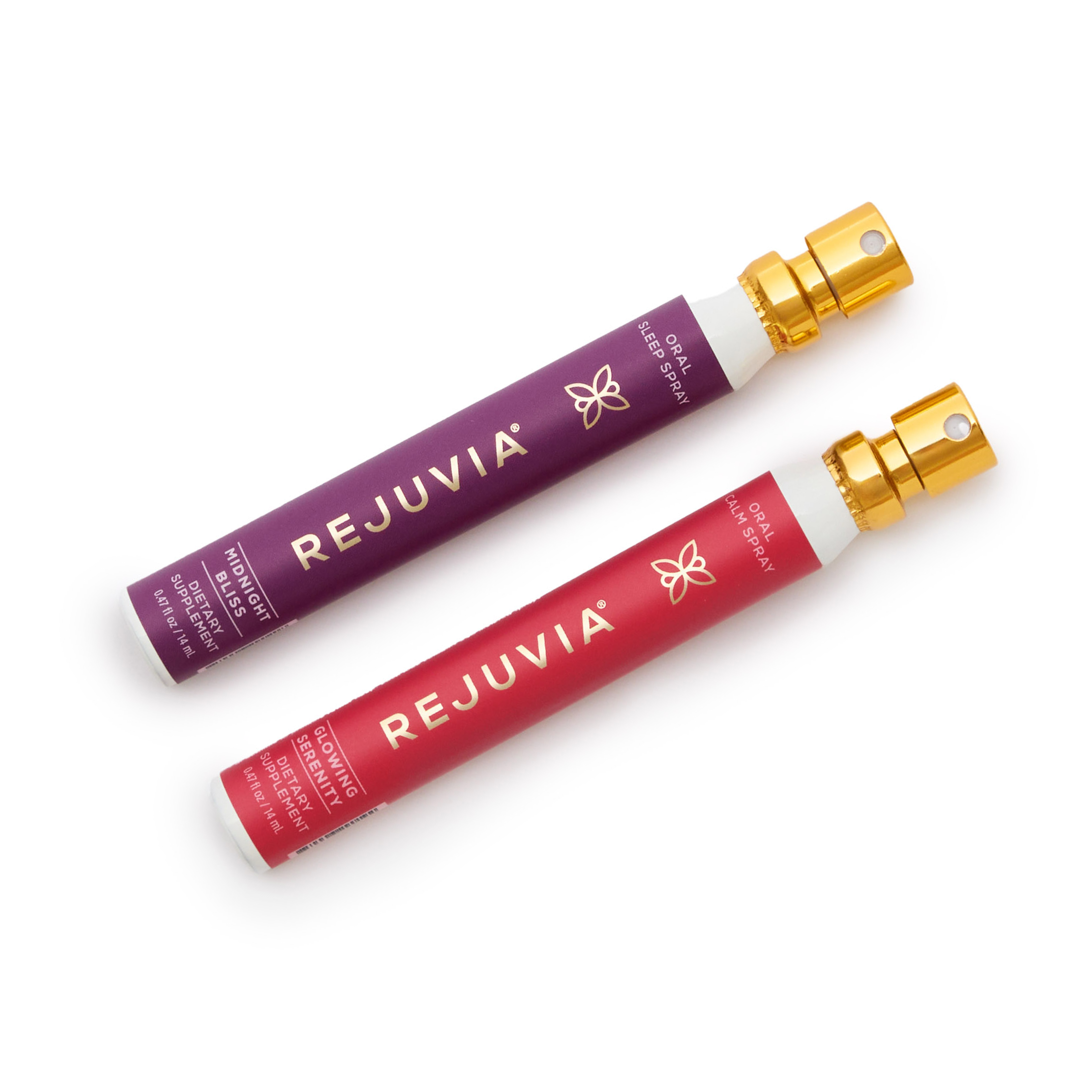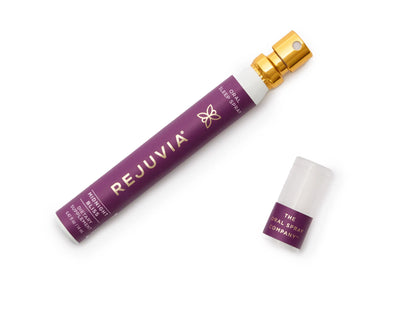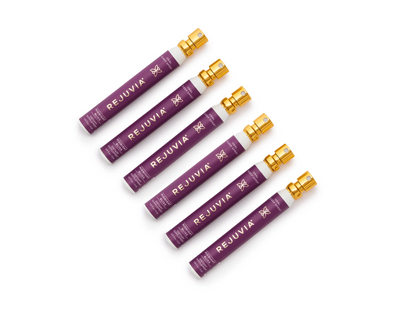Oral Sprays vs. Pills: Sleep Aid Comparison
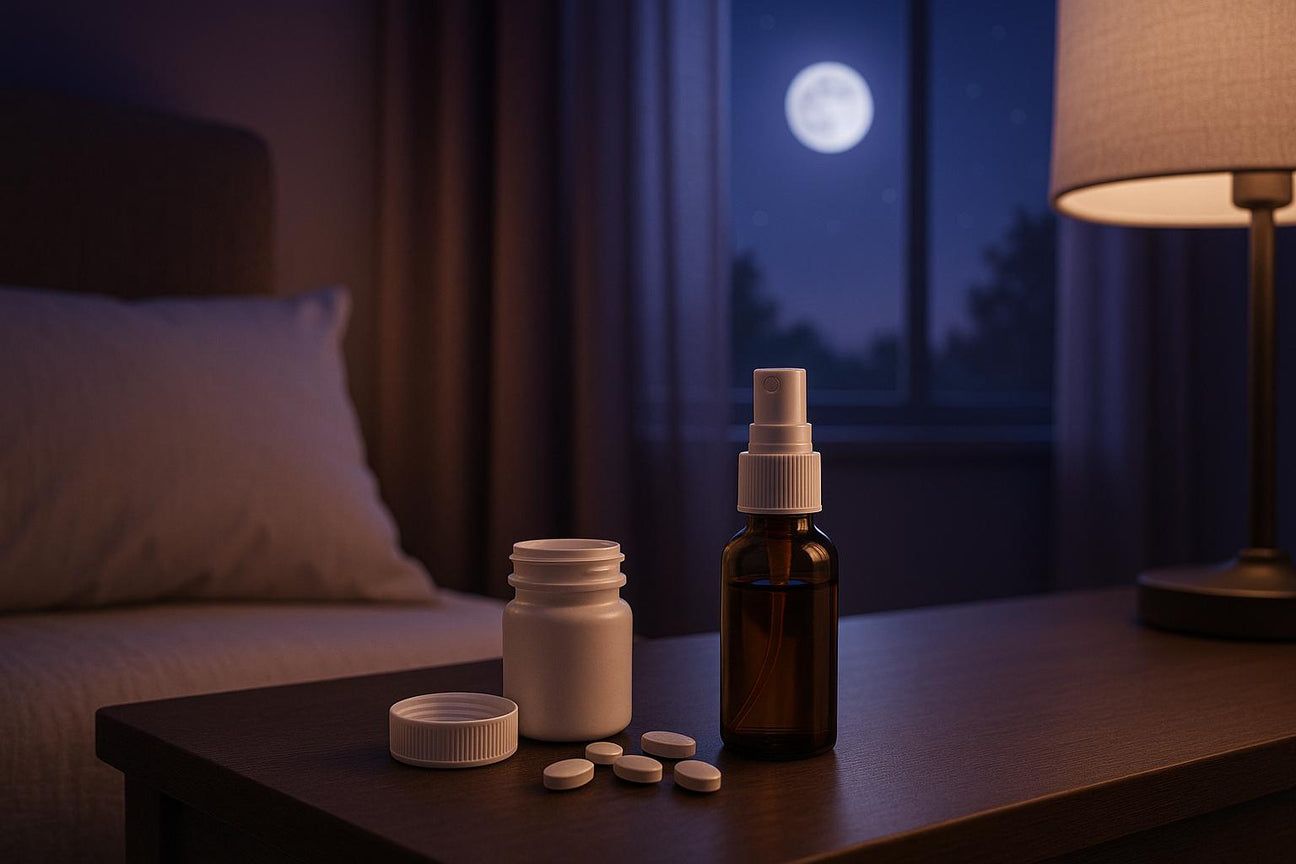
Struggling to fall asleep? The choice between oral sprays and pills can make a big difference in how quickly you drift off. Here's the key takeaway: oral sprays work faster because they bypass your digestive system, while pills take longer as they need to be processed by your stomach and liver.
Key Points:
- Oral sprays: Absorbed through the mouth's mucous membranes, taking effect in 10–20 minutes. No water needed, portable, and allows flexible dosing.
- Pills: Processed through the digestive system, taking 30–60 minutes to work. Requires water and offers fixed doses.
Quick Comparison:
| Feature | Oral Sprays | Pills |
|---|---|---|
| Absorption Speed | 10–20 minutes | 30–60 minutes |
| Dosing | Adjustable | Fixed per pill |
| Water Required | No | Yes |
| Portability | Compact | Bulkier packaging |
| Ease of Use | No swallowing needed | Must be swallowed |
If you need fast relief or convenience, oral sprays are the better choice. Pills, however, suit those who prefer fixed doses or a more structured routine. Choose based on your sleep needs and lifestyle.
How Your Body Absorbs Each Format
Oral Spray Absorption
When you use an oral spray, active ingredients like melatonin are absorbed directly into your bloodstream through the mucosal lining in your mouth. This method skips the digestive system and liver entirely. Because of this sublingual absorption, peak concentrations are typically reached within 10–20 minutes, making it a quicker option for sleep support.
Now let’s take a closer look at how pills are absorbed.
Pill Absorption
Pills, on the other hand, follow a much slower path. After swallowing, they pass through your stomach and intestines, where acids and enzymes gradually break them down to release the active ingredients. This process delays the time it takes for melatonin to reach peak blood levels, often taking 40 minutes or more. Additionally, the liver processes the ingredients further, which reduces how much of the melatonin your body can actually use.
These differences in absorption paths directly affect how quickly you’ll feel the effects of the sleep aid.
Impact on Sleep Onset Speed
Absorption speed plays a key role in how quickly a sleep aid can help you drift off. Because oral sprays bypass digestion, they typically take just 15–30 minutes to start working. Pills, however, can take anywhere from 30–60 minutes. If you’re looking for faster relief, an oral spray like Rejuvia's Sleep Spray might be the better choice, offering quicker results without the extended delay associated with pills.
| Absorption Factor | Oral Sprays | Pills |
|---|---|---|
| Route to Bloodstream | Direct via mouth's mucosal lining | Through the digestive system and intestines |
| Time to Peak Effect | 10–20 minutes | 40+ minutes |
| Time to Feel Effects | 15–30 minutes | 30–60 minutes |
| Liver Processing | Skipped | Required |
| Bioavailability | Higher | Lower due to digestive breakdown |
Onnit Melatonin Spray Review - Best Melatonin Supplement for Sleep?
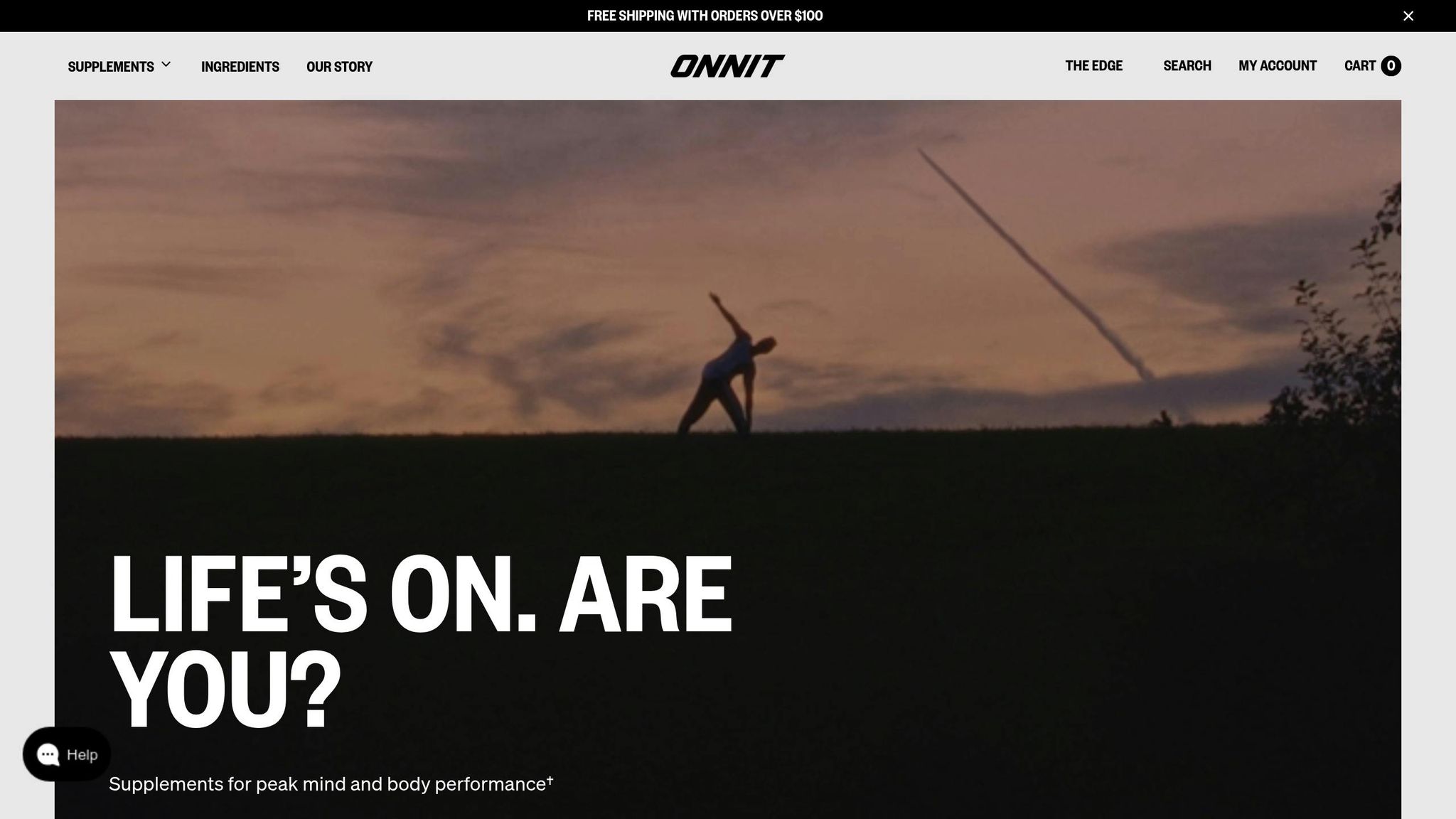
Convenience and Ease of Use
When it comes to your nightly routine, convenience can make all the difference. A sleep aid that’s easy to use and fits seamlessly into your lifestyle is far more likely to become a habit you stick with.
Why Oral Sprays Stand Out
Oral sprays come with some serious perks that make them a favorite for many. For starters, no water is needed, so you can use them anywhere without hassle. Whether you’re in bed, traveling, or navigating a dark room in the middle of the night, sprays are discreet and easy to handle. They’re especially handy for those unexpected wake-ups when you don’t want to fumble around.
Another big win? Portability. Most sprays, like Rejuvia's Sleep Spray, come in compact bottles that are small enough to slip into your purse, carry-on, or even your nightstand drawer. At just a few inches tall, they’re far less bulky than traditional pill bottles, making them a great travel companion.
Then there’s the flexibility. With customizable dosages and a refreshing mint flavor, oral sprays let you tailor your dose to your needs each night. A few sprays for a gentle nudge toward sleep or a couple more for those tougher nights - it’s entirely up to you.
These features make oral sprays a flexible and practical option for a smoother sleep routine.
The Ups and Downs of Pills
Pills, on the other hand, come with their own set of pros and cons. The familiar format appeals to many, and the precise dosing in each pill eliminates any uncertainty about how much to take.
But pills aren’t without their drawbacks. They typically require water, which isn’t always convenient, especially in the middle of the night. People with swallowing difficulties might also find them challenging. Plus, with fixed dosages, you’re limited to the amount pre-set in each pill. And let’s not forget the bulkier packaging - not exactly ideal for tossing into a small bag or keeping discreetly by your bedside.
When you weigh the options, oral sprays often come out ahead for those who value ease, portability, and flexibility in their sleep aids.
sbb-itb-de8e20a
Direct Comparison: Oral Sprays vs Pills
Oral sprays and pills each bring unique advantages depending on your sleep requirements.
Comparison Chart
Here’s a quick breakdown of how these two options stack up:
| Feature | Oral Sprays | Pills |
|---|---|---|
| Absorption Speed | Fast (10–20 minutes) | Slower (30–60 minutes) |
| Dosing Flexibility | Adjustable (1–3 sprays as needed) | Fixed per tablet |
| Water Required | No water needed | Usually requires water |
| Portability | Compact, travel-friendly | Portable but often in bulkier packaging |
| Ease of Use | No swallowing required | Must be swallowed |
| Onset Time | Rapid effects within 10–20 minutes | Delayed effects (30–60 minutes) |
| Ingredient Profile | Fewer fillers, often sugar-free | May contain binders and coatings |
| Digestive Impact | Bypasses the stomach | Requires digestion |
| Discretion | Can be used discreetly | Less discreet in public |
| Best For | Fast-acting relief, travel, and swallowing difficulties | Routine use and combination formulations |
The standout difference is absorption speed. Pills need to pass through your digestive system, which delays their effects, while oral sprays - like Rejuvia's Sleep Spray - work directly through the mucous membranes in your mouth. This direct absorption can help you fall asleep in as little as 10–20 minutes.
Another advantage of sprays is their customizable dosing. With sprays, you can adjust the amount based on your needs each night, unlike pills, which come in fixed doses. This flexibility can be especially helpful when dealing with varying sleep challenges.
For those who value convenience, sprays shine with their compact, waterless design, making them perfect for travel or situations where swallowing a pill is inconvenient - like during a flight. They’re also discreet to use in public settings, unlike pills, which might draw attention.
Both options are generally safe for short-term use, but sprays may have an edge by bypassing the stomach, potentially reducing digestive discomfort. Plus, the ability to fine-tune your dose can help avoid taking more than you need.
Think about these factors to decide which option aligns better with your sleep needs.
Which Format Is Right for You?
Your sleep patterns and daily routine play a big role in deciding whether an oral spray or pill is the better choice. Both options can help improve sleep, but understanding your unique needs will guide you toward the best fit.
Why Oral Sprays May Be More Effective for Sleep
Oral sprays work quickly due to their faster absorption, as mentioned earlier. Unlike pills with fixed doses, sprays let you adjust the amount you take - anywhere from 1 to 3 sprays - based on what you need each night. This flexibility is especially useful if your sleep challenges vary, allowing you to avoid over- or under-dosing.
Sprays are also incredibly convenient. They don’t require water, making them easy to use on the go or right by your bedside. This portability is ideal for travel or situations where you'd prefer not to disturb others, like a sleeping partner. If swallowing pills is difficult for you, sprays are a practical alternative. Plus, their compact size means they fit easily in a carry-on bag or nightstand drawer.
The science backs up their effectiveness. Studies show oral sprays significantly enhance melatonin absorption compared to tablets. In fact, melatonin absorption with sprays is 1.8 times higher, and peak concentrations are 1.5 times higher than with pills. Even more striking, melatonin levels at 5, 10, and 20 minutes after dosing were 4.6, 3.5, and 3.0 times higher, respectively, when delivered via spray.
Products like Rejuvia's Sleep Spray highlight these benefits. With its natural formula and focus on fast absorption, it’s designed to help you fall asleep faster, stay asleep longer, and wake up feeling refreshed - all without the grogginess that can sometimes follow other sleep aids.
Now, think about how your personal sleep habits align with these advantages.
Consider Your Sleep Needs
Your sleep routine and lifestyle should ultimately steer your decision.
- Oral sprays are a great option if you struggle to fall asleep quickly, travel frequently, have difficulty swallowing pills, or need the flexibility to adjust your dose nightly. They’re also handy if you tend to wake up during the night and need help falling back asleep fast.
- Pills, on the other hand, might suit you better if you prefer a fixed dose, enjoy a structured bedtime routine, or are looking for a product with multiple sleep-supporting ingredients. A consistent pill-taking habit can serve as a helpful signal for bedtime.
Timing is another key factor. If your sleep needs are unpredictable - like during travel or shift work - the fast-acting nature of sprays can be a lifesaver. But if you stick to a regular bedtime and can plan ahead, the slower onset of pills might not be an issue.
Regardless of the format you choose, always start with the lowest effective dose and consult a healthcare provider if you have ongoing sleep problems or take other medications. Both sprays and pills are generally safe for short-term use when taken as directed, but individual results may vary.
FAQs
Why do oral sprays absorb melatonin faster than pills?
Oral sprays offer a faster and more efficient way to deliver melatonin because they are absorbed directly through the mucosal lining in your mouth. Unlike pills, which must pass through the digestive system and be broken down in the stomach, sprays allow melatonin to enter your bloodstream almost immediately.
Research has found that oral sprays can lead to higher peak melatonin levels in the blood more quickly than tablets. This makes them an appealing choice for anyone looking for quick-acting sleep support.
Why are oral sprays a great sleep aid option for travelers?
Oral sprays are a great option for travelers looking for a sleep aid because they work quickly, helping you drift off even in unfamiliar surroundings or when adjusting to a new time zone. This makes them particularly useful for managing jet lag or adapting to different sleep environments.
What makes oral sprays even more appealing is their portability and ease of use. They’re small, discreet, and don’t require water or extra packaging, making them ideal for travel. Whether you’re on a long flight, staying in a hotel, or moving between destinations, oral sprays provide a simple and effective way to support better sleep while on the go.
What are the possible side effects of using oral sprays for sleep support?
While sleep-support oral sprays are usually easy on the body, some people might notice minor side effects like dry mouth, dizziness, daytime drowsiness, headaches, or nausea. Occasionally, they may also cause stomach-related issues like constipation or diarrhea.
In rare situations, overusing these sprays could trigger more serious problems, including difficulty breathing, seizures, or even loss of consciousness. To stay safe, it’s crucial to pick products made with regulated, high-quality ingredients. Stick to the recommended dosage, and if you have any concerns or existing health conditions, it’s a good idea to check in with a healthcare professional first.
